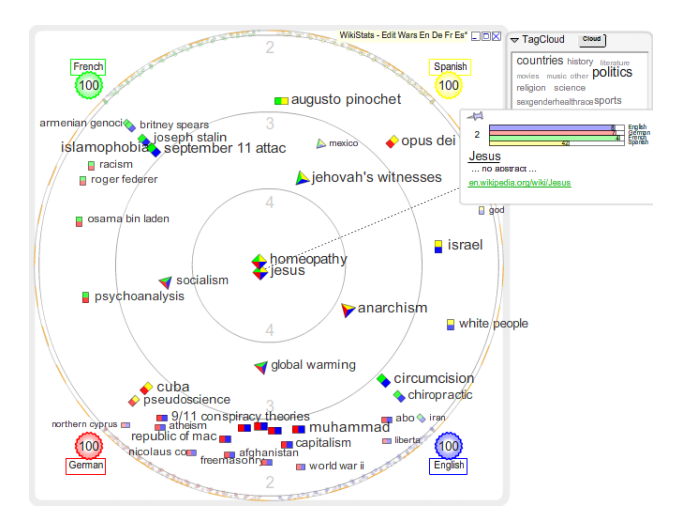Best of 2013: Edit Wars Reveal the 10 Most Controversial Topics on Wikipedia
Wikipedia, the encyclopaedia that anybody can edit, is one of the more extraordinary collective efforts of the crowd. Wikipedia’s own estimate is that it has some 77,000 contributors working on more than 22 million articles in 285 languages. The largest edition, the English version, alone offers over 4 million articles.

So it’s not surprising that disputes arise over the wording of these articles. Indeed, the controversy can sometimes reach war-like proportions with one editor changing the wording and another immediately changing it back again.
These so-called edit wars can be used to identify controversial topics but an interesting question is how controversy varies across languages and cultures. Given its unique position that straddles multiple languages and cultures, Wikipedia is in the perfect position to provide some answers.
Today, Taha Yasseri at the University of Oxford in the UK and a few pals have ranked the most controversial topics in 10 different languages according to the intensity of the editing wars they generate.
Keep Reading
Most Popular
Large language models can do jaw-dropping things. But nobody knows exactly why.
And that's a problem. Figuring it out is one of the biggest scientific puzzles of our time and a crucial step towards controlling more powerful future models.
The problem with plug-in hybrids? Their drivers.
Plug-in hybrids are often sold as a transition to EVs, but new data from Europe shows we’re still underestimating the emissions they produce.
Google DeepMind’s new generative model makes Super Mario–like games from scratch
Genie learns how to control games by watching hours and hours of video. It could help train next-gen robots too.
How scientists traced a mysterious covid case back to six toilets
When wastewater surveillance turns into a hunt for a single infected individual, the ethics get tricky.
Stay connected
Get the latest updates from
MIT Technology Review
Discover special offers, top stories, upcoming events, and more.